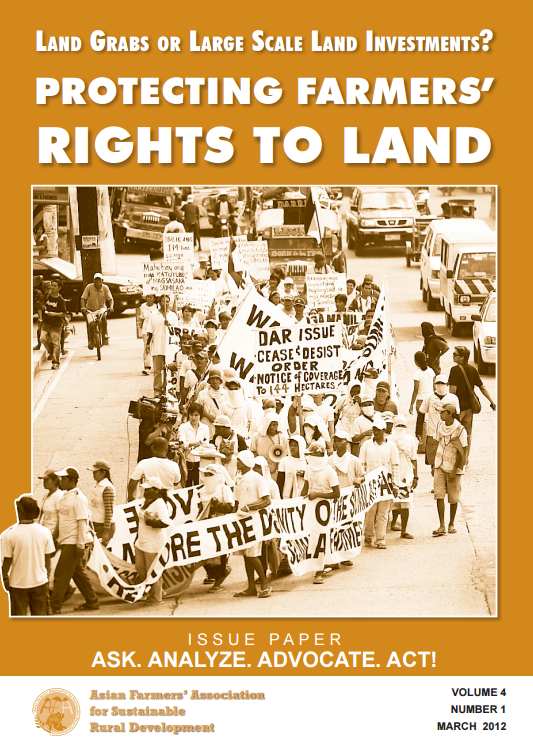Land Grabs or Large Scale Land Investments? Protecting Farmers’ Rights to Land
“Large scale land investments” and “land grabbing” are the terms most commonly used to describe the rising global trend where foreign and local agribusinesses, mining corporations, governments, and investment houses obtain long term rights over large areas of land. Perhaps the most famous of these is the attempt by the Daewoo Group of South Korea to lease 1.3 million hectares, or more than half of the productive agricultural lands of Madagascar, in Africa.





